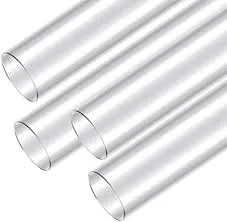Oct . 13, 2024 07:34 Back to list
polypropylene board
The Versatility of Polypropylene Boards
Polypropylene boards have emerged as a popular choice across various industries due to their unique properties and versatility. As a thermoplastic polymer, polypropylene (PP) is known for its lightweight, durable, and chemical-resistant characteristics, making it an ideal material for an array of applications. This article explores the features, benefits, and diverse uses of polypropylene boards, shedding light on why they have become a go-to solution for manufacturers and customers alike.
Characteristics of Polypropylene Boards
Polypropylene boards are typically produced through extruding polypropylene resin, resulting in a solid and robust material. These boards are available in different thicknesses, colors, and surface finishes, allowing for customization to suit specific needs. One of the standout features of polypropylene boards is their excellent resistance to moisture, chemicals, and UV light. This attribute makes them particularly useful in environments where exposure to harsh conditions is inevitable.
Another significant characteristic of polypropylene boards is their lightweight nature. Compared to other materials like wood or metal, PP boards are easier to handle and transport, contributing to lower shipping costs and easier installation processes. Additionally, they can be easily fabricated into various shapes and sizes, providing the flexibility needed for specialized applications.
Benefits of Polypropylene Boards
The benefits of using polypropylene boards are numerous
. First and foremost is their durability. Polypropylene is resistant to impact and does not warp or swell when exposed to moisture, making it an excellent choice for both indoor and outdoor applications. Furthermore, PP boards have a high melting point, typically around 160°C (320°F), which allows them to maintain structural integrity in higher temperature environments.Another critical advantage of polypropylene boards is their ease of maintenance. Unlike wood, which may require regular treatment to prevent rot and decay, or metals that can corrode, polypropylene boards only necessitate simple cleaning with soap and water. This low-maintenance requirement not only saves time but also reduces long-term costs associated with upkeep.
polypropylene board

Sustainability is another factor increasingly influencing material selection in today’s environmentally conscious world. Polypropylene is fully recyclable, allowing manufacturers to reduce waste and promote sustainable practices. This eco-friendly aspect appeals to consumers and businesses seeking to minimize their environmental footprint.
Applications of Polypropylene Boards
The applications of polypropylene boards are vast and varied. One of the most common uses is in the manufacturing of signage and displays. Their vibrant colors and ability to be easily printed on make them suitable for creating eye-catching promotional materials. Additionally, the lightweight nature of these boards facilitates easy installation and transport.
In the packaging industry, polypropylene boards are used extensively for making containers, pallets, and dividers. Their chemical resistance ensures that they can safely contain a variety of materials without the risk of contamination. Moreover, their durability provides a safe solution for transporting goods in challenging environments.
In construction, polypropylene boards are utilized for protective barriers, insulation, and even in some forms of interior design. Their resistance to moisture and mold makes them perfect for applications in humid environments, such as bathrooms and kitchens. Additionally, they are often employed in the automotive industry, where lightweight materials are increasingly important for improving fuel efficiency.
Conclusion
In conclusion, polypropylene boards offer an impressive combination of characteristics that make them suitable for a wide range of applications across industries. Their durability, lightweight nature, chemical resistance, and sustainability align well with the modern requirements of consumers and businesses. As industries continue to evolve, the versatility of polypropylene boards will likely play an increasingly significant role, providing innovative solutions that meet the demands of the future. Whether in signage, packaging, construction, or beyond, polypropylene boards are undoubtedly shaping the way we think about materials.
-
High-Quality PPR Pipes and Fittings Durable ERA PPR & PVC PPR Solutions
NewsJul.08,2025
-
Black HDPE Cutting Board - Durable, Non-Porous & Food Safe HDPE Plastic Cutting Board
NewsJul.08,2025
-
High-Quality CPVC Panel Durable HDPE & PVC Panels Supplier
NewsJul.08,2025
-
Double PE Welding Rod Supplier - High Strength, Durable & Versatile Welding Solutions
NewsJul.07,2025
-
High-Quality PVC-O Pipe Supplier Durable 75mm PVC Pipe & Connections Leading PVC Pipe Company
NewsJul.07,2025
-
HDPE Drainage Pipe Supplier – Durable & Corrosion-Resistant Solutions
NewsJul.06,2025

